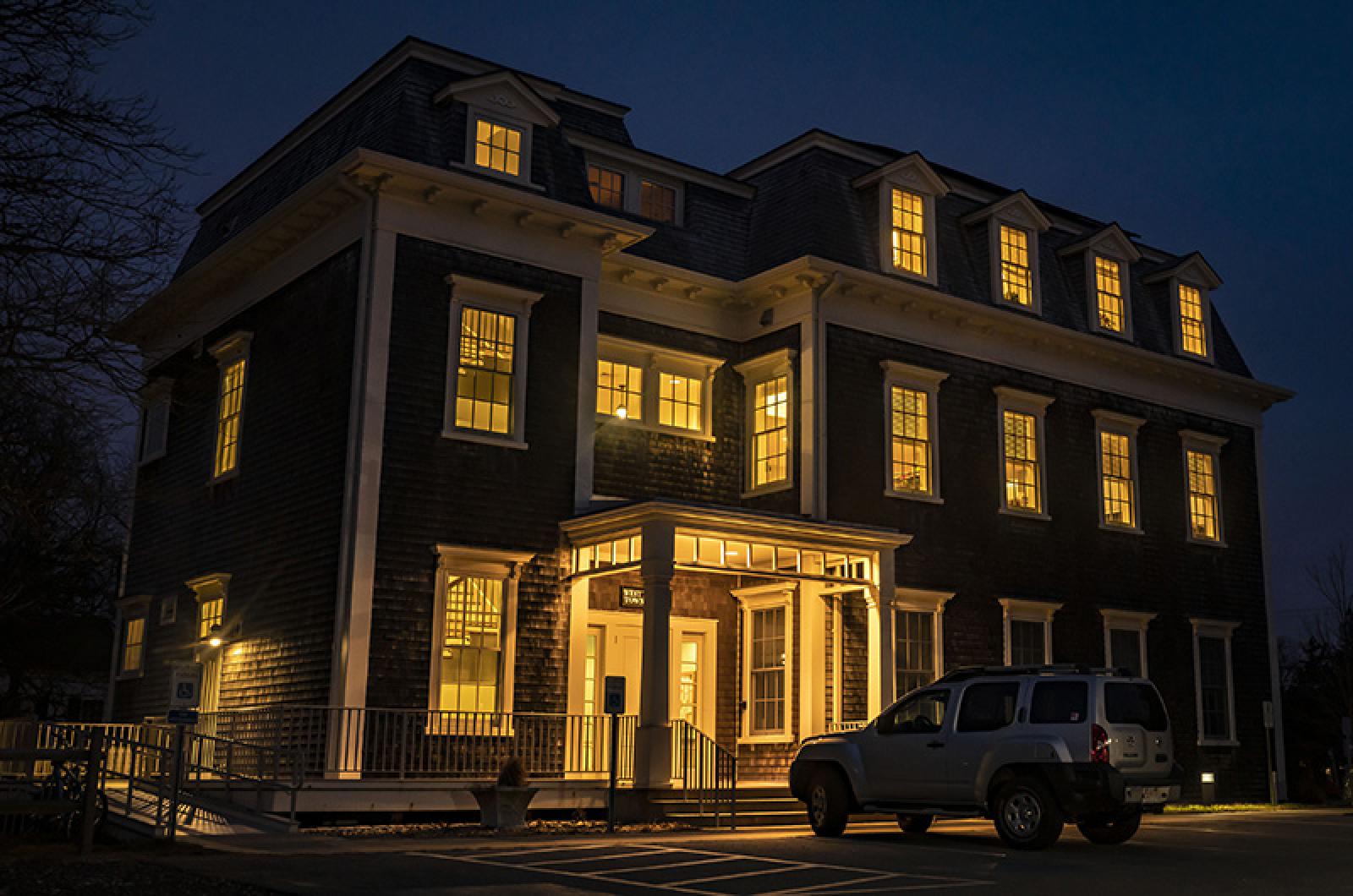West Tisbury selectmen considered how much to tax short term rentals and took a stand with kids against plastic at their regular meeting Wednesday evening.
Selectmen grappled with how to proceed on the new short-term rental tax, signed into law by Gov. Charlie Baker last month. The law levies a 5.7 per cent tax on most short-term rental properties, with an option of adopting an increased local option for town revenue.
West Tisbury is the only town on the Island that had not previously adopted a local option rooms tax.
Town administrator Jen Rand told selectmen the town could adopt an extra 2, 4 or 6 per cent rooms tax. That tax would apply to the Lambert’s Cove Inn and the youth hostel as well as short term rentals. Selectmen could also choose to adopt up to a 3 per cent community impact fee for properties that are professionally managed and are owned by someone who has more than one property.
The 2.75 per cent Cape and Islands water tax cannot yet apply to West Tisbury because the town does not have public wastewater infrastructure.
“It is a complicated piece of legislation, and it was a very quick turnaround time. Towns and cities weren’t really adequately prepared,” said Christine Flynn of the Martha’s Vineyard Commission, who attended the meeting to offer estimates on potential town revenue. “There’s a lot of information right now that’s not available.”
According to Ms. Flynn’s estimates, which are based on 2014 census data, there are about 690 short term rental units in West Tisbury. If the town charges a 6 per cent rooms tax, they stand to bring in more than $1.2 million in revenue.
Some community members said they worried about the effect taxes would have on their summer rentals. Samantha Look was among them. She framed it as an affordable housing issue for landlords.
“We are in the town only because we can do this with our homes. There is no way I would move my children out of their home every summer to do this if it wasn’t absolutely critical,” she said. “If we start getting hit with so many fees and so many speed bumps, it may be easier to just not be here.”
But Makenzie Brookes and Doug Ruskin said the tax could be an opportunity to start a housing bank for affordable housing on the Island.
Efforts to start a housing bank — a repository for funds modeled after the land bank to support affordable housing — date back for more than a decade, but have been renewed with the passage of the new law. Housing bank proponents have appeared before multiple Island boards of selectmen and have circulated petitions for town meeting warrant articles to establish the fund.
“I’m trying to avoid using a cliché, but it’s like a once in a lifetime opportunity in terms of producing revenue from one of the very sources that creates this situation that we all are in... which is it’s unaffordable and there’s not enough housing,” Ms. Brookes said.
Selectmen Jeffrey (Skipper) Manter 3rd said he would prefer the money to go directly back to the taxpayers by lowering the tax rate. Selectmen took no action on the proposal.
The housing bank articles will appear on the town warrant by petition in April.
In other business, close to a dozen fifth grade students from the West Tisbury school attended the meeting to present a warrant article banning disposable plastic water and soda bottles. If passed, the bylaw would go into effect in 2020 and ban the sale of bottled water and soda drinks under 34 ounces.
Selectmen unanimously voted to place the article on the annual town meeting warrant, pending small adjustments to the wording. Town meeting will take place April 9.







Comments (3)
Comments
Comment policy »